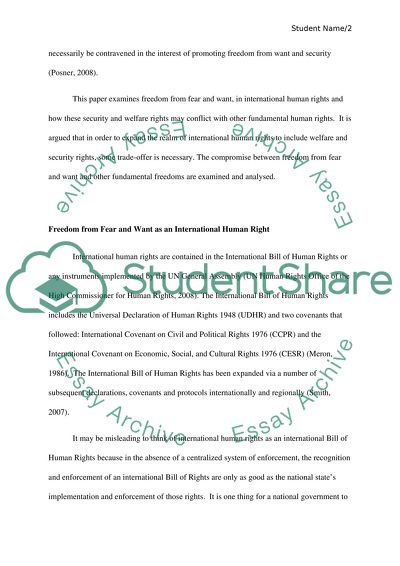Cite this document
(“Freedom from Fear and Want in the Context of International Human Essay”, n.d.)
Retrieved from https://studentshare.org/law/1394937-freedom-from-fear-and-want-in-the-context-of-international-human-rights-law
Retrieved from https://studentshare.org/law/1394937-freedom-from-fear-and-want-in-the-context-of-international-human-rights-law
(Freedom from Fear and Want in the Context of International Human Essay)
https://studentshare.org/law/1394937-freedom-from-fear-and-want-in-the-context-of-international-human-rights-law.
https://studentshare.org/law/1394937-freedom-from-fear-and-want-in-the-context-of-international-human-rights-law.
“Freedom from Fear and Want in the Context of International Human Essay”, n.d. https://studentshare.org/law/1394937-freedom-from-fear-and-want-in-the-context-of-international-human-rights-law.


